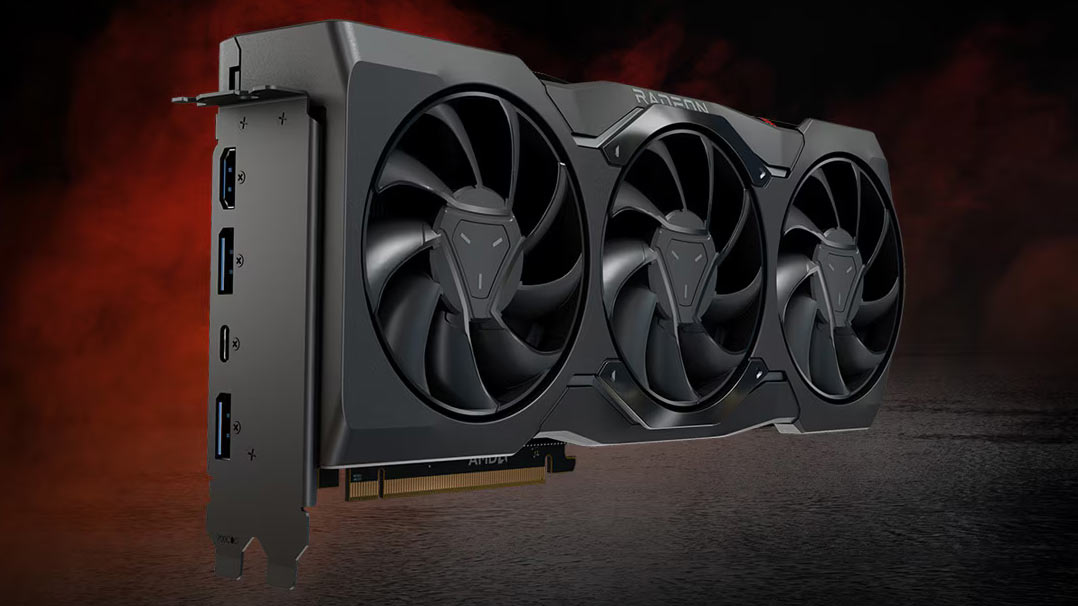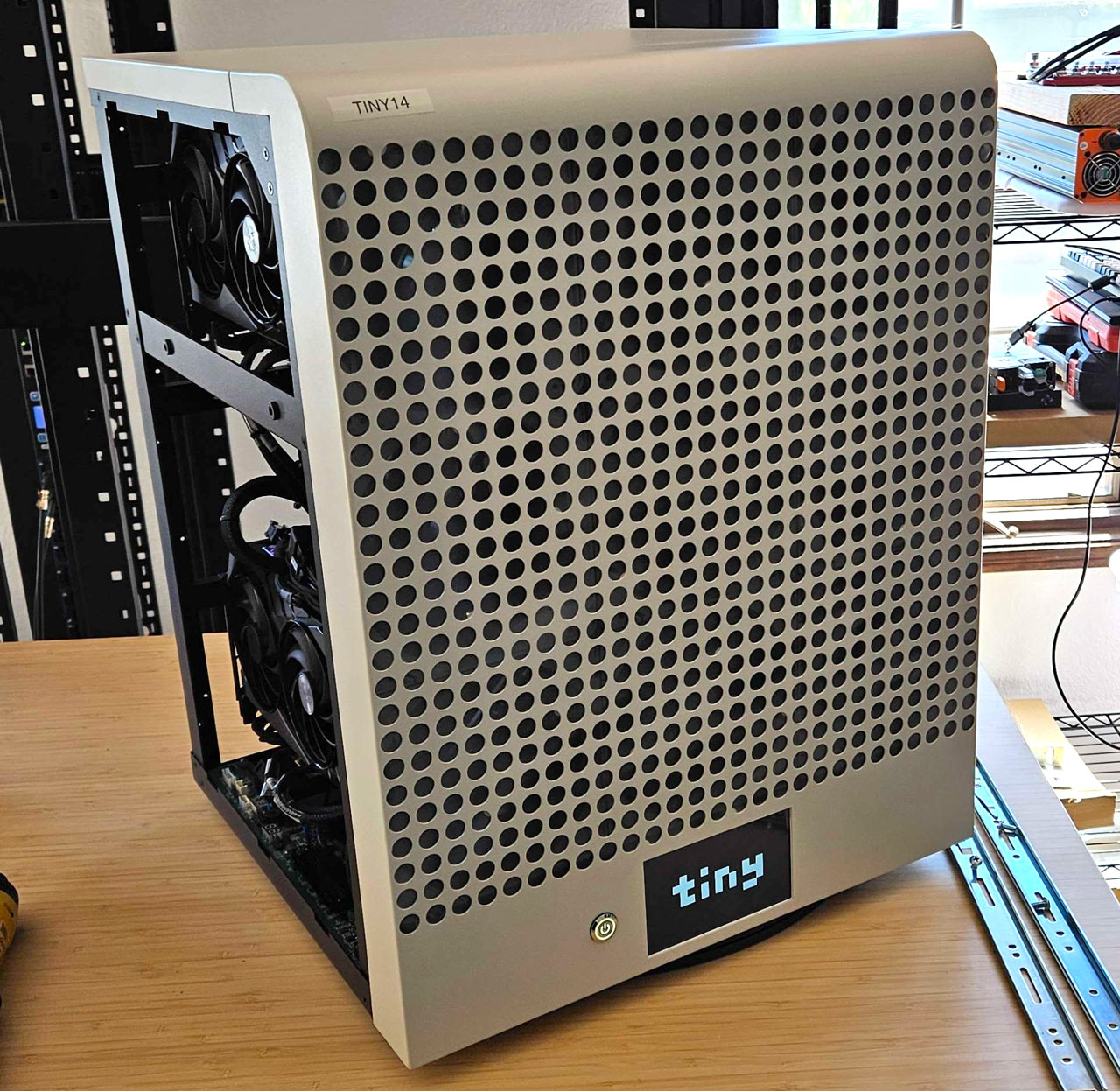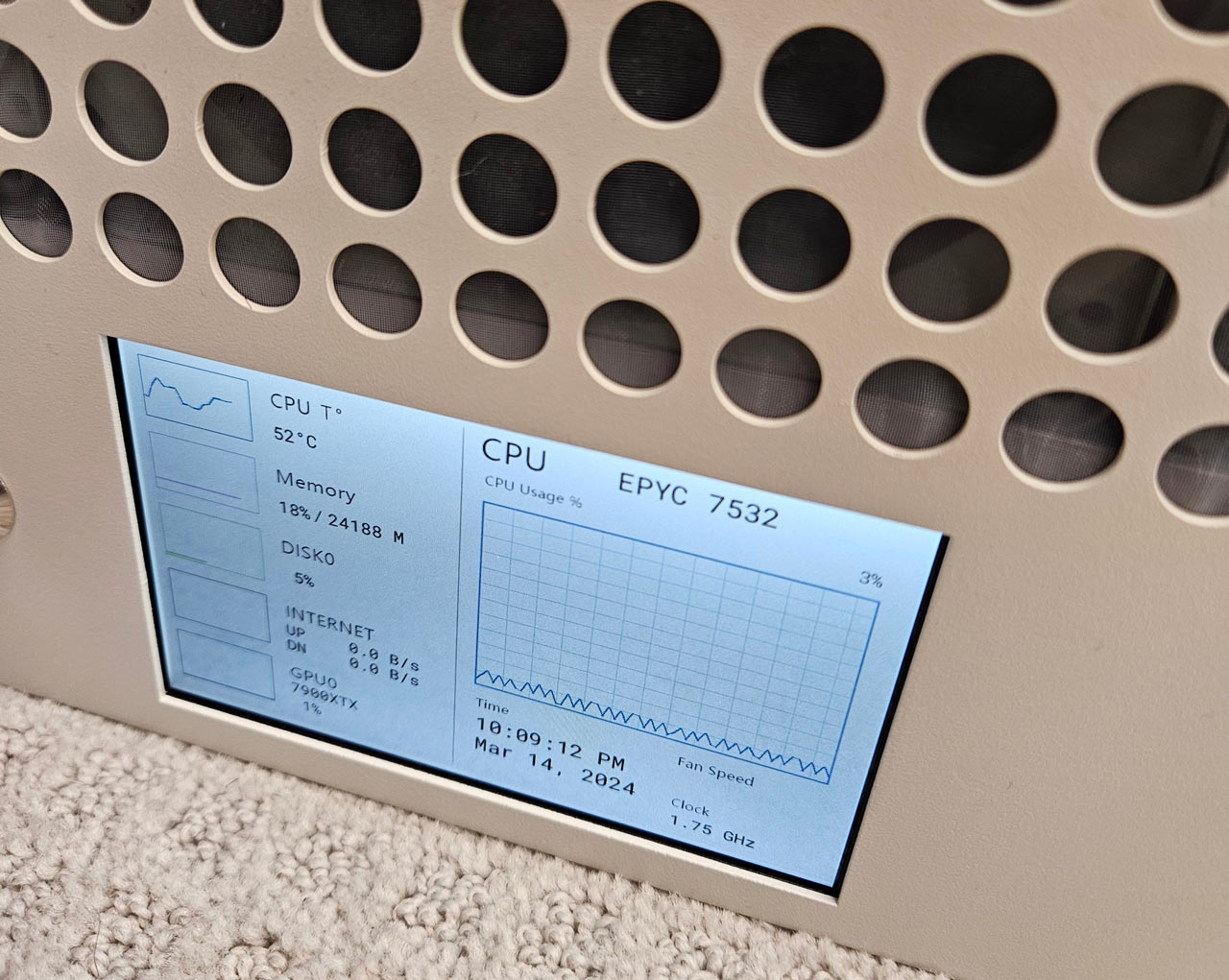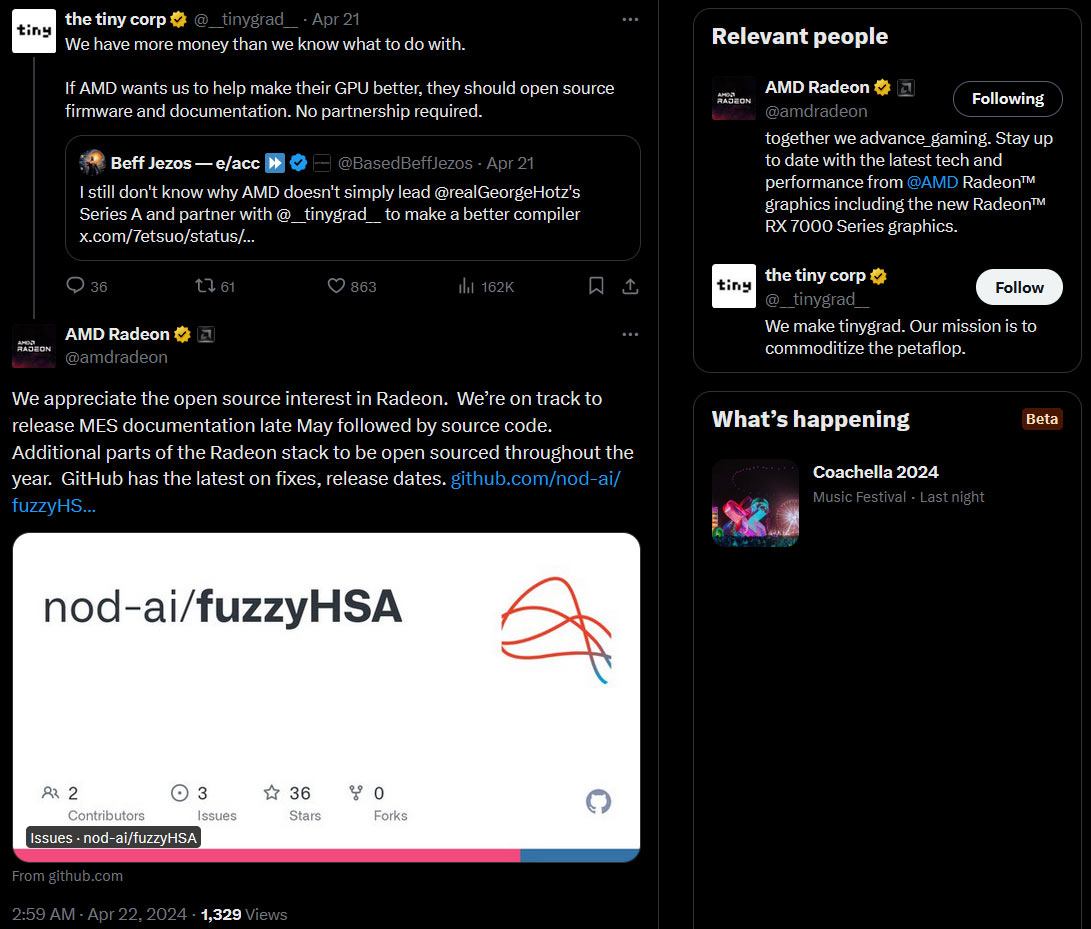AMD pushes forward with its Radeon stack open-sourcing plans — after being prodded by Tiny Corp
MES documentation is to be published next month, with more open-sourcing of the Radeon stack next on the agenda.

AMD has stated that it's on track to release its Micro Engine Scheduler (MES) documentation in late May, followed by source code. Then it will follow through with releases of additional parts of the Radeon stack as open-source. The statement was seemingly made in response to a Tweet/X by Tiny Corp, which has been publicly corresponding with (and often criticizing) AMD on social media for several months.
The discourse between Tiny Corp and AMD has made more than a few headlines in recent months. The former designed and pre-sold its TinyBox AI server, which garnered interest due to its use of relatively affordable AMD Radeon GPUs. However, the firm’s social media and its founder, George Hotz, became quite vocal as it discovered the consumer-grade cards weren’t behaving in a server-grade or enterprise-ready manner.
In brief, Tiny Corp wanted greater / deeper access to AMD hardware, firmware, and driver IP. The company thinks that with sufficient access to the firmware and driver stack, it can make the Tiny Box function as advertised. Despite Tiny Corp being a small company, AMD engaged, and even Dr Lisa Su joined the conversation in early March. Su said the “team is on it,” back in March, but Tiny Corp remains grumpy about the situation it finds itself in to this day.
“We are working to release Micro-Engine Scheduler (MES) documentation towards end of May and will follow up with published source code for external review and feedback,” noted the official AMD Radeon Twitter/X account in early April. “We have also opened a GitHub tracker, which will have the latest status on fixes and release dates.”
Today, we saw a significant update in documentation and open-sourcing progress at AMD. In a reply to a further barb from Tiny Corp, the red team’s graphics division reiterated the MES documentation statement from earlier in the month. It added, “Additional parts of the Radeon stack to be open-sourced throughout the year,” before directing interested parties to keep an eye on a GitHub repository.
Tiny Corp has already replied to AMD’s statement, characterizing the MES news as “a red herring,” and asking for further parts of the architecture to be open-sourced, with documentation for the hardware scheduler, which it sees as a cause of Tiny Box system deadlocks.


As PC enthusiasts not particularly interested in using servers like the Tiny Box, we are still very interested in any knock-on effects the release of additional Radeon documentation and open-source software could have for us. If bugs are quashed and optimizations are made via entities like Tiny Corp, that should be good for other Radeon users. Moreover, this opening-up initiative could be beneficial to the Linux developers and community seeking to get more from their Radeon hardware.
Get Tom's Hardware's best news and in-depth reviews, straight to your inbox.

Mark Tyson is a news editor at Tom's Hardware. He enjoys covering the full breadth of PC tech; from business and semiconductor design to products approaching the edge of reason.
-
-Fran- Excellent.Reply
I'm actually keeping an eye on these news, because I want to fully migrate from Windows, but there's a few things I need AMD to work on so I can fully move without caring.
Regards. -
ezst036 Has Tiny Corp made any additional comments since AMD publicly agreed to open the source on this stuff?Reply -
Zaranthos Reply
A lot of people would be happy to leave Windows behind. Gaming performance, simplicity of setup, and other Linux obstacles have held many people back thus far. But the gap has been closing for a long time now and Linux does tend to seem more viable than ever. For a lot of people that few percent difference in performance numbers or little user friendly details hold people back. It's probably at the point where if I actually put the effort into Linux I'd find I kind of hate enough stuff about Windows to make the switch.-Fran- said:Excellent.
I'm actually keeping an eye on these news, because I want to fully migrate from Windows, but there's a few things I need AMD to work on so I can fully move without caring.
Regards. -
-Fran- Reply
Gaming performance? You like your games running slower in Windows? xDZaranthos said:A lot of people would be happy to leave Windows behind. Gaming performance, simplicity of setup, and other Linux obstacles have held many people back thus far. But the gap has been closing for a long time now and Linux does tend to seem more viable than ever. For a lot of people that few percent difference in performance numbers or little user friendly details hold people back. It's probably at the point where if I actually put the effort into Linux I'd find I kind of hate enough stuff about Windows to make the switch.
Just look at the plenty comparisons between the Steam deck and the Ally when running the same games and their 1% lows. Even at 15W mode, it beats in many titles the Ally at >30W. Bananas. Proton is at a point where it's just amazing. One asterisk and the one I alluded to, is the driver maturity and its surrounding tools. That I can accept it's behind, but not as far as it was a while ago.
Simplicity of setup... I don't know what you mean there, but installing Linux nowadays (Ubuntu, Suse, Debian, Mint and SteamOS) are super easy and with a lot of help already built in and no BS. Well, a little bit, but acceptable. Each distro does it slightly differently, but I'd be moving into either Mint or SeamOS.
As a daily use OS, and this is using the Steam Deck as a normal PC with the "desktop mode", I just see nothing that is harder or more complicated for the average user. Different, sure, but not harder or more intrincate. In fact, I find some usability things (they bundle KDE with SteamOS) are really good and coherent, unlike in Windows. Hell, I'd even say the UI is WAY more polished in KDE Plasma than Windows 10/11.
Regards. -
hannibal The speed is not the problem for Linux… it is about not working at all from times to times or working badly. Windows emulation is still emulation. Sometimes it works, sometimes it does not.Reply
Best option would be native Linux programs… but Linux environment is so fragmented that normal user does not even know how to instal programs or drivers… if there even are program or drivers. Linux still has long way to go.
I hope better future for Linux, but in its current stage… only computer nerds like me really can use Linux and some stable productivity programs… still no Linux versions. There are alternatives… but that is not the same thing. -
Giroro AMD hasn't even gotten ROCm to a point where it's particularly useful on windows - which I imagine would be a pretty important priority for them, given the AI fad .... so I don't know what's going on over there.Reply
At some point AMD needs to put the time into improving their own ecosystem, instead of just publishing documentation (eventually) and hoping random people get annoyed enough to do their development for free.
